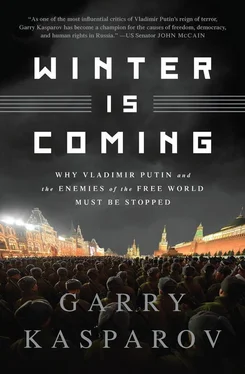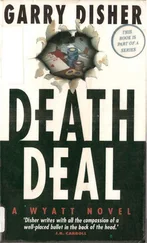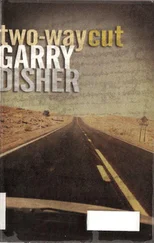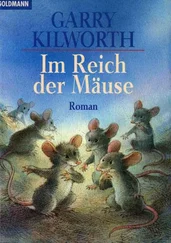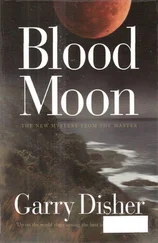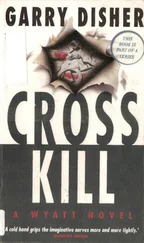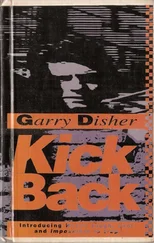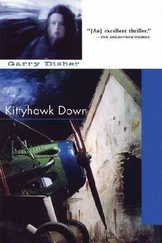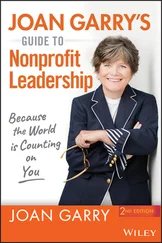A war on any grounds is terrible, but Putin’s dangerous turn to ethnically based imperialism cannot be ignored. Those who say the Ukraine conflict is far away and unlikely to lead to global instability miss the clear warning Putin has given us. There is no reason to believe his announced vision of a “Greater Russia” will end with Eastern Ukraine and many reasons to believe it will not. Dictators only stop when they are stopped, and appeasing Putin with Ukraine will only stoke his appetite for more conquests.
Ukraine is just one battle the free world would like to ignore in a larger war it refuses to acknowledge even exists. But pretending you don’t have enemies does not make it true. The Berlin Wall and the Soviet Union are gone, but the enemies of freedom who built them are not. History does not end; it runs in cycles. The failure to defend Ukraine today is the failure of the Allies to defend Czechoslovakia in 1938. The world must act now so that Poland in 2015 will not be called on to play the role of Poland in 1939.
The Cold War was won not just by military or economic superiority, but on values I, a former Soviet citizen, unironically call traditional American values, ones that the Western Bloc adopted as well. We cannot resolve the problems of globalization with the same legal and economic tools that created it. We need new, morality-based frameworks to confront the dictatorships in Russia and China now that they have so thoroughly become a part of our globalized world. We need new alliances to combat the stateless terror networks that use our technology against us. These frameworks and alliances must be based on moral principles, the only weapon the enemies of democracy cannot match. This is even more obvious when those enemies possess nuclear weapons, making a military confrontation unimaginably dangerous.
The hazy battle lines of these modern conflicts can only be addressed by bright moral lines. The free world’s enemies can be identified by their targets. They know that if liberal democracy and free market policies succeed, then they are out of business—and so they fight for their very survival. To meet these attacks we must turn our principles into policies. We must identify and understand what we are fighting for, and fighting against. We must be willing to defend our values as if our lives depended on them, because they do.
We must resist the distractions, excuses, and straw man arguments presented by dictators and thugs on one side and echoed by appeasers and cowards on the other. They talk ceaselessly of what might happen if the free world stands up to Putin or the consequences of taking direct military action against ISIS. But what they do not want to address is what will happen if insufficient action is taken, if the status quo of appeasement and engagement is allowed to continue. Avoiding a new Cold War sounds like an admirable goal, but what if we are already in one? And what of the actual war and invasion and annexation of European soil that has already happened in Ukraine? Denial is not an acceptable policy. Fretting only about what might happen when the current situation is already catastrophic is a pathetic attempt to defer tough decisions. Ignoring your cancer and arguing with the doctors who diagnosed it will not save you, no matter how much you fear treatment.
There is no way to be sure exactly what will happen if the nations of the free world, led by the United States and NATO, confront Putin in Ukraine (or, for that matter, decide to wipe ISIS off the map). What we can be sure of is that action will eventually be necessary and that it will require more resources, more sacrifices, and more lives lost for every day that goes by. Putin, like every dictator ever known before him, grows in confidence and support when he is unchallenged. Every step he can trumpet as a success to the Russian people makes it harder to remove him and more likely he will feel bold enough to take even more aggressive steps.
It is true that if America, Europe, and the rest of the world’s democracies finally realize the era of engagement is over and strike at Putin and the other thugs by cutting them off and providing overpowering support to their targets, conflicts may worsen before they can be extinguished. This view—the willingness to accept short-term sacrifice for the long-term good—requires the sort of leadership the free world has very little of today. It requires thinking beyond the next poll, the next quarterly report, and the next election. The policies of the Cold War held remarkably firm for decades, across administrations, and eventually ended in a great victory for the side of freedom. Since then, one president after another, one prime minister after another, passed the buck of human rights in Russia until Putin had enough momentum to launch a real war on European soil.
A popular straw man argument is to suggest that intervention against aggression might lead to World War III or even a nuclear holocaust. To the contrary, the only way the current crisis will continue to escalate is if Putin is not confronted with an overwhelming threat to his hold on power, which is the only thing he cares about. If Putin is allowed to go from victory to victory, wiping out any opposition at home while gaining territory and influence abroad, the risk of an all-out war increases dramatically. Adolf Hitler did not attack Poland in 1939 because the Allies stood up for Czechoslovakia; they didn’t. Hitler did not move into the Sudetenland because the world protested vigorously at his Austrian Anschluss, but because the response was so feeble. It was only after all of his early triumphs were accomplished so effortlessly, against so little opposition from the Western democracies, that he had the confidence to go too far.
Of course Putin is no Hitler; that unspeakable evil will never be matched—although those who lived through the horrors of Stalin, Mao Zedong, and Pol Pot may disagree. It is important, though, to remember that in 1936—and even in 1937 and 1938—Hitler was no Hitler either! The adulation of the foreign athletes and dignitaries at the Berlin Olympic Games, the unopposed ease of the Nazi army’s first steps over the post-WWI German borders, the eager capitulation of Chamberlain: these are the things that allowed Hitler to become the monster.
In terms of global influence, Russia’s industrial and military power today is no match for that wielded by Nazi Germany. But Putin has one thing Hitler never had: nuclear weapons. And he is not shy about reminding us of that fact. I forced myself to listen to Putin’s October 2014 Q&A session in Sochi twice because I couldn’t believe he was so casually praising Soviet leader Nikita Khrushchev’s terrifying nuclear gamesmanship. But we should all listen carefully to what Putin says, because he has a track record of following through with his threats when left unchecked.
If, however, the leaders of the free world come to their senses in time and present a strong united front against Putin-one with economic sanctions, substitution for Russian energy, diplomatic isolation, and economic and military support for his targets-it will provide a foundation for a new alliance of the world’s democracies. Dictatorships will be given the choice of reforming and joining the community or being steadily marginalized and left behind. The European Union employs this model internally; each prospective member state must meet explicit standards of economic development and human rights. Yet the same EU is happy to do business with brutal dictatorships like Putin’s Russia that it could never accept as members. Ending Putin’s war and ending this hypocritical policy of engagement can happen at the same time.

The first order of business in this book will be to establish why this undeclared war is real and why it matters. Lacking obvious symbols to focus on and without an evil empire to fight, it will be difficult to rally the world’s democracies to take action, and yet they must. Then we will examine how two decades of Western retrenchment and retreat have encouraged autocrats like Putin and terrorist groups like ISIS to flourish around the world.
Читать дальше
